All Stories
-
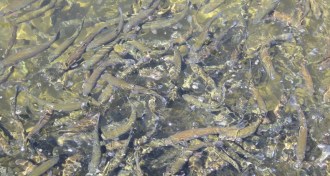 Life
LifeHatcheries’ metal can disrupt steelhead magnetic sense
Growing up in magnetic fields distorted by pipes and electronics confounds young fish’s inherited map sense.
By Susan Milius -
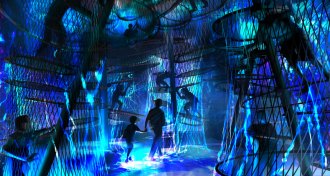 Science & Society
Science & SocietyTo do: Summer science exhibits across the country
Here's a roundup of museum exhibits to explore in the United States.
-
 Health & Medicine
Health & MedicineYour baby: The ultimate science experiment
Babies may be serious scientists, but parents can join the fun by trying some simple experiments with their kids.
-
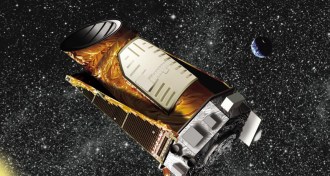 Astronomy
AstronomyRevived Kepler mission bags three planet candidates
During a nine-day engineering test, the Kepler space telescope turned up three potential Jupiter-sized planets orbiting other stars.
-
 Health & Medicine
Health & MedicineEarly malnutrition may impair infants’ mix of gut microbes
Babies’ gut microbiomes fail to fully recover even after fending off bouts with malnutrition.
By Nathan Seppa -
 Physics
PhysicsPrecision measurement of antimatter made
The charge of antihydrogen atoms is essentially neutral, even out to eight decimal places, a new precision measurement made at CERN shows.
-
 Chemistry
ChemistryDecay of Leonardo da Vinci drawing reflected in light
Light that bounces off a Leonardo da Vinci drawing, widely considered a self-portrait, has revealed extensive chemical damage that causes yellowing.
By Beth Mole -
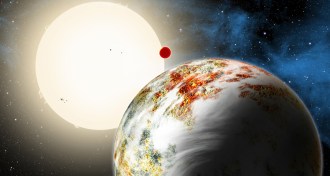 Astronomy
AstronomyRocky, overweight planet shakes up theories
Kepler-10c is a rocky exoplanet 17 times as massive as Earth, and astronomers are puzzled as to how it formed.
-
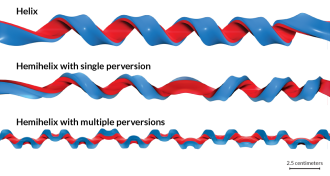 Life
LifeA new twist on a twist
Nature abounds with perfect helices. They show up in animal horns and seashells, in DNA and the young tendrils of plants. But helix formation can get complicated: In some cases, the direction of rotation can reverse as a helix grows.
-
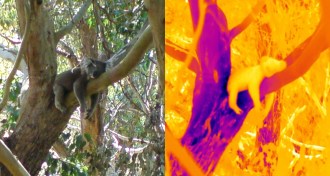 Animals
AnimalsWhy tree-hugger koalas are cool
Drooping against bark during a heat wave could save koalas from overheating.
By Susan Milius -
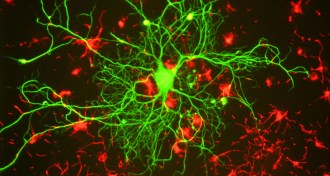 Neuroscience
NeuroscienceStress and the susceptible brain
Some of us bounce back from stress, while others never really recover. A new study shows that different brain activity patterns could make the difference.
-
 Health & Medicine
Health & MedicineHealth risks of e-cigarettes emerge
Research uncovers a growing list of chemicals that end up in an e-cigarette user’s lungs, and one study finds that an e-cigarette’s vapors can increase the virulence of antibiotic-resistant bacteria.
By Janet Raloff